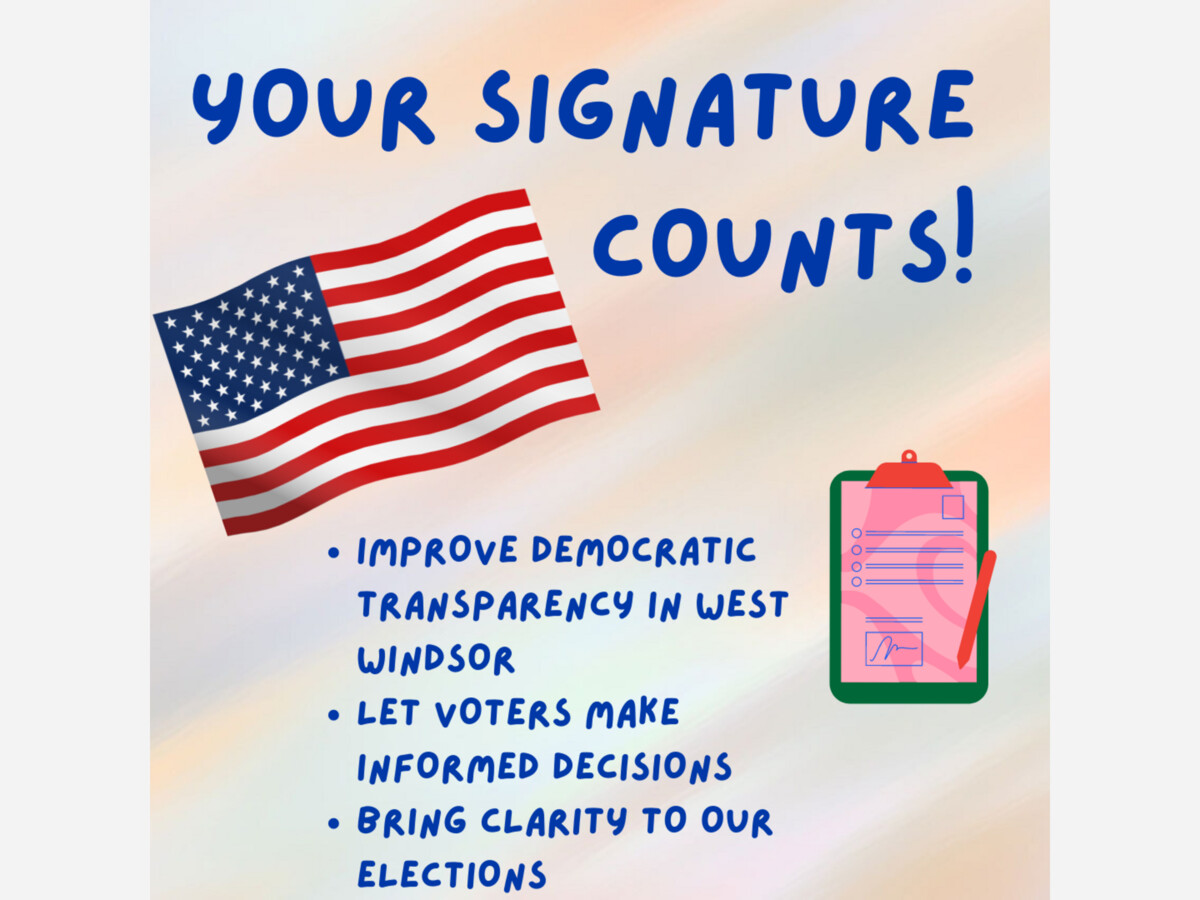Image


Disclosure: Ben Finkelstein is a former Town Council Candidate and has an informed perspective on the ballot process.
A group of West Windsor citizens is working to put a referendum on the ballot in November, 2024. The purpose of the referendum is to increase candidate transparency and increase voter engagement by changing West Windsor from being nonpartisan to partisan.
This potential referendum requires nearly 2000 signatures to get on the ballot - a large ask for a town of 21,885 registered voters.
According to the committee that is vying for this change, the need to become partisan stems from low voter turnout and misleading political rhetoric.
The hope is that by making party affiliation clear, voters will have a better ability to decode political speech. When party affiliation is public knowledge, it becomes harder for politicians to fool voters by sounding progressive to an audience of Democrats or conservative to an audience of Republicans. When party affiliation is clear, voters feel more confident in what candidates actually stand for, which in turn improves voter turnout.
Since a change in 1992, West Windsor has held nonpartisan elections in which candidates are forbidden from directly campaigning under party affiliation. Ballots do not include information about party affiliation for local municipal candidates (unlike federal, state, or county officials). Without this data point being readily available, voters lose confidence and that in turn directly impacts turnout in municipal elections.
How about a local and recent example? In the 2023 off-year elections, only 26% of registered West Windsor voters cast their ballot. This is slightly lower than the state and county averages (the majority of which is partisan). Moreover, compared to a town with similar education and income levels - Princeton - there was a dramatic difference. 35% of Princeton’s registered voters cast their ballot. One can certainly argue that West Windsor’s nonpartisan status is a major factor in their vastly lower engagement.
In fact, according to academic research, social scientists have long known that “nonpartisanship depresses turnout.” In the oft-cited article “Teams Without Uniforms: The Nonpartisan Ballot in State and Local Elections” it is made clear that nonpartisan elections do not achieve the goal of having voters do more research. Instead, nonpartisanship causes voters to misunderstand the nature of the elected offices, leading to decreased participation in off-year elections.
There is a corollary to the depressed turnout - a major advantage for incumbents. The authors Straffner, Streb, and Wright note that without voters knowing candidate party affiliation, the electorate relies “more on incumbency in their voting decisions.”
With that perspective, it is no wonder any incumbent would be vehemently against a change from nonpartisan to partisan.
To learn more visit: https://www.ww4representation.com/